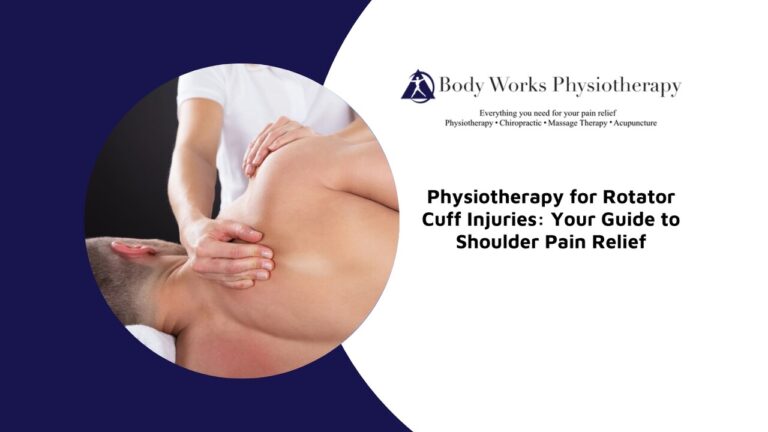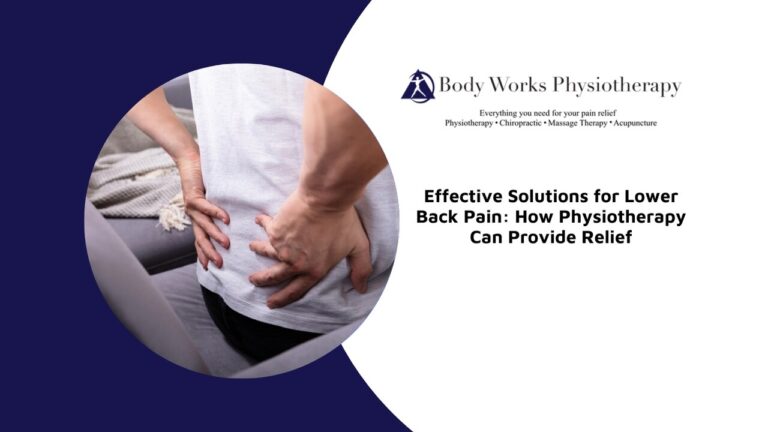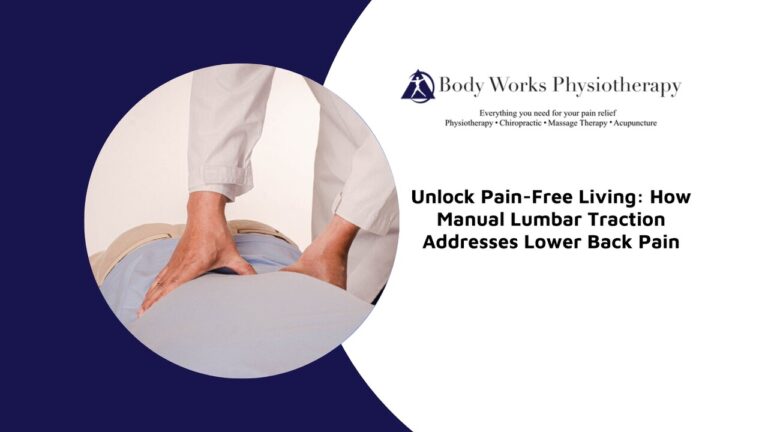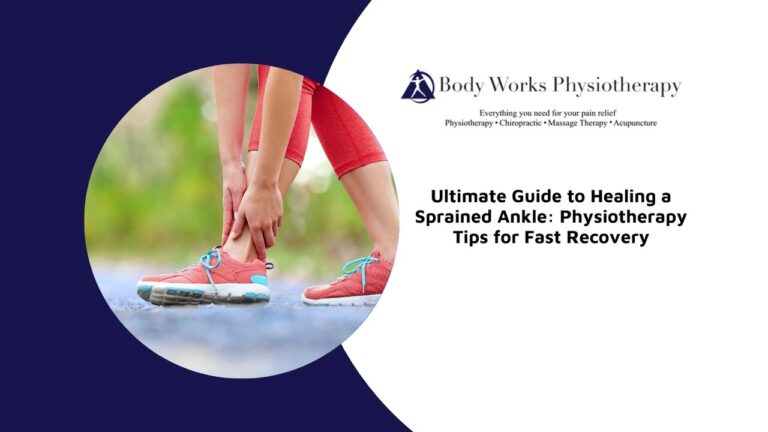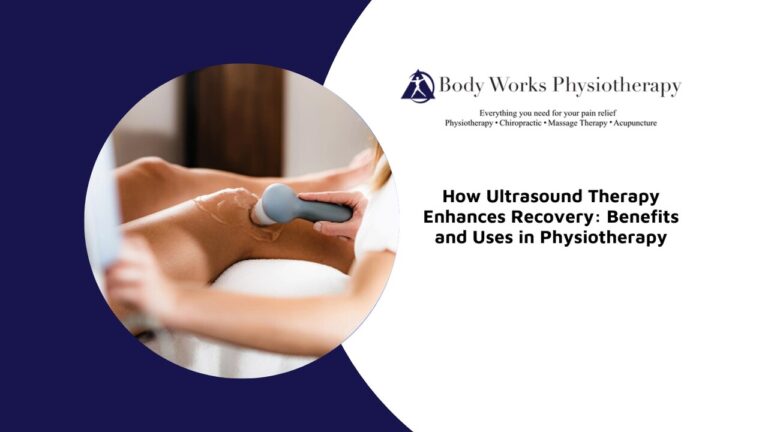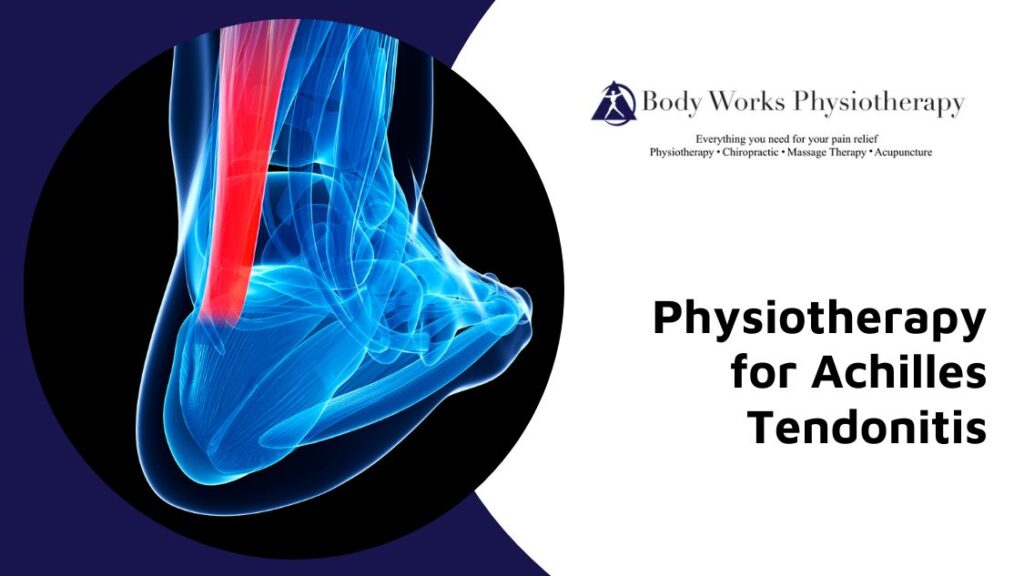
Achilles tendonitis is an agonizing injury that affects the Achilles tendon, which links the upper thigh muscle tissue to the heel.
It’s brought on by excessive use or repeated pressure on the tendon and can be extremely unbearable, preventing some everyday tasks and also adversely affecting your lifestyle.
Luckily, physiotherapy can be an excellent treatment for this problem. Physiotherapists make use of a wide range of treatments to decrease swelling and discomfort, boost flexibility, and enhance the muscle mass surrounding the damaged location.
This short article will explain just how physical rehabilitation can serve to help deal with Achilles tendonitis and offer some tips on how to get the absolute most from your treatment.
What is Achilles Tendonitis?
As was mentioned above, Achilles tendonitis is an agonizing problem bearing upon the tendon that links the upper leg muscle tissue to the heel. Tendonitis is caused by repetitively stressing a tendon and can be really limiting.
Signs of Achilles tendonitis include foot pain, leg pain and hip pain, as well as stiffness in the rear of the lower leg, calf pain, swelling, tenderness, and difficulty walking or running.
If left untreated, Achilles tendonitis can lead to chronic pain, as well as more injury to the tendon tissue and even tendon tearing.
While most instances of Achilles tendonitis will ultimately recover on their own, the recovery process may be significantly improved via a visit to the physiotherapist.
Causes of Achilles Tendonitis
Achilles tendonitis is a common condition caused by too much use or recurring stress of the Achilles tendon.
This can happen from actions such as running, leaping, and playing sports that involve a great deal of running and leaping. Many sports players will quite likely experience Achilles tendonitis at some point in their lives.
Achilles tendonitis can likewise be brought on by using shoes that don’t offer adequate support for the feet, or by having tight upper thigh muscle tissues.
Additionally, people who have flat feet are more likely to suffer from Achilles tendonitis because of the raised tension on the tendon when taking a walk or running.
Benefits of Physiotherapy for Achilles Tendonitis
Physical rehabilitation delivers numerous essential benefits to sufferers of Achilles tendonitis. Physiotherapy provides pain relief, and reduces soreness and inflammation in the muscle tissues by stimulating blood flow to the afflicted area as well as loosening the tension that the muscle tissues and tendon are experiencing.
Physical rehabilitation also helps to enhance flexibility as well as increase a person’s range of movement while the tendon is recovering. Then finally, physiotherapy helps to strengthen the muscles surrounding the afflicted area, making re-injury to the tendon less likely.
What’s even more, physio therapists can evaluate the condition and produce an individualized recovery plan to help reduce your pain and improve tendon and muscle capability.
Varieties Of Physical Rehabilitation Treatments to Treat Achilles Tendonitis
The first step in addressing Achilles tendonitis with physiotherapy is to minimize pain as well as swelling. This can be carried out through therapies such as ice therapy, ultrasound, and electric stimulation.
After the inflammation has actually been minimized, stretching and reinforcing activities may be employed to boost the flexibility and toughness of the Achilles tendon.
Physio therapists also use a variety of techniques such as stretching workouts, massage treatment, ultrasound treatment, ice/heat treatment, electric stimulation (TENS), and bracing/taping to treat this ailment.
Stretching exercises are important for increasing flexibility in the upper thigh muscles while strengthening workouts serve to help construct stamina in these muscle tissues.
Massage treatment helps reduce stress in strained muscle tissues while ultrasound therapy helps reduce swelling.
Ice/heat therapy can also be used to decrease discomfort and inflammation, while electrical stimulation (TENS) helps to loosen up taut muscle tissues. Bracing/taping can likewise provide support for weakened tendons.
Tips for Getting the Best Results Out of Physiotherapy Treatment
Follow these suggestions to get the best results out of your physical rehabilitation treatment:
- Choose a physio therapist that you’re comfortable collaborating with. Your physiotherapist must be well-experienced and proficient in the treatment of Achilles tendonitis and various other injuries.
- Follow your physiotherapist’s instructions and do all of the suggested exercises. While some exercises might be briefly uncomfortable, they are essential to loosening up the tension which created the injury and building up your muscles to prevent further damage.
- Wear supporting footwear when engaging in activities that might cause pressure on the Achilles tendon. Weak foot support is a contributing aspect to Achilles tendonitis as well as similar injuries.
- strengthening and stretching exercises ought to be carried out consistently to preserve flexibility and toughness in the upper thigh muscle tissues.
- Lastly, icing or heat treatment can be utilized to lessen swelling and discomfort after activity.
By following these tips, you can make certain that you are getting the most out of your physiotherapy treatment.
Recap
Physiotherapy is an effective treatment for Achilles tendonitis, offering pain reduction, enhanced mobility as well as range of motion, and building up of the muscle tissues around the affected area.
Physio therapists make use of a variety of methods such as stretching workouts, massage treatment, ultrasound therapy, ice/heat therapy, electrical stimulation, and bracing/taping to treat this injury.
To get the best results out of physiotherapy treatment for Achilles tendonitis, it is important to locate a physiotherapist that you are at ease with and follow their instructions.
Furthermore, supporting footwear needs to be worn during activities that might trigger strain on the Achilles tendon, and flexing and building up exercises ought to be performed on a regular basis.
Finally, icing or heat treatment can be made use of to reduce discomfort and swelling after activity.
Give the experienced professionals at Body Works Physiotherapy a phone call and allow our experienced team of physiotherapists help alleviate your Achilles tendonitis pain. We’re currently accepting new patients, so call today.

